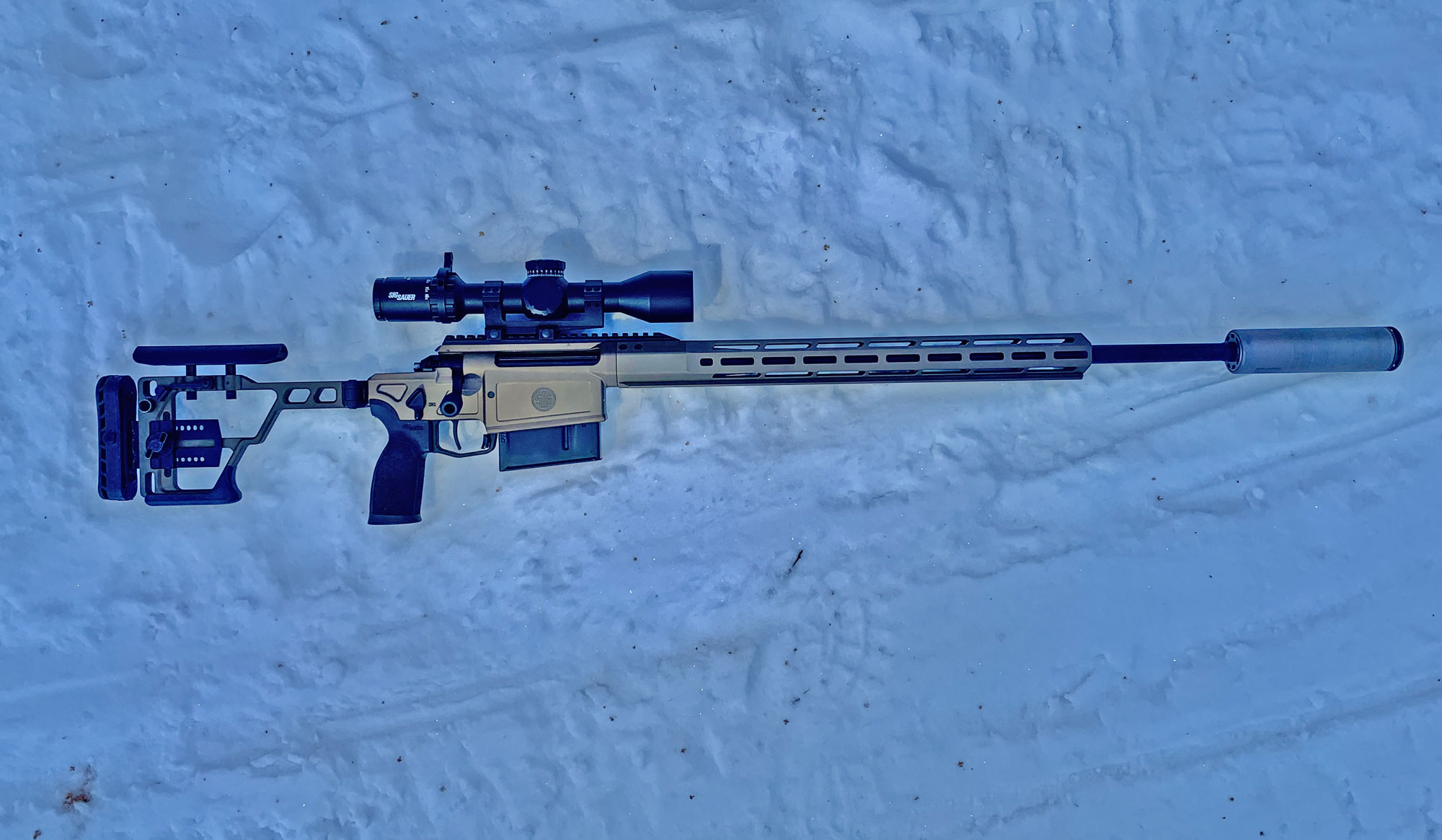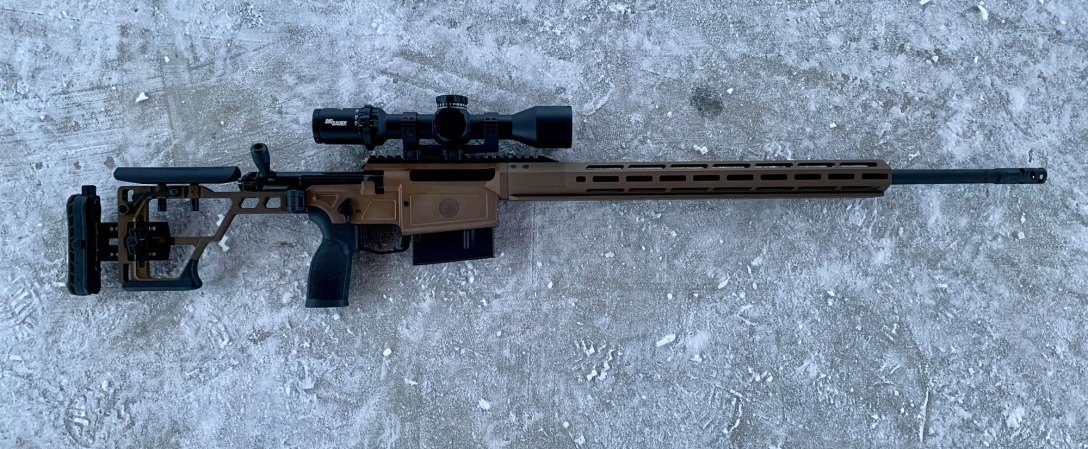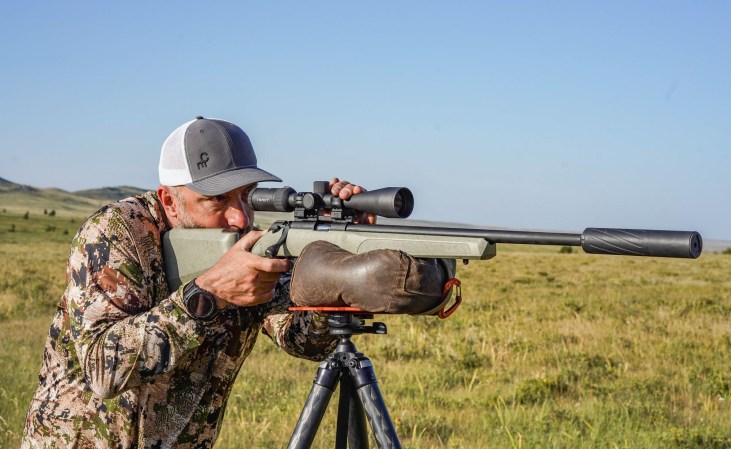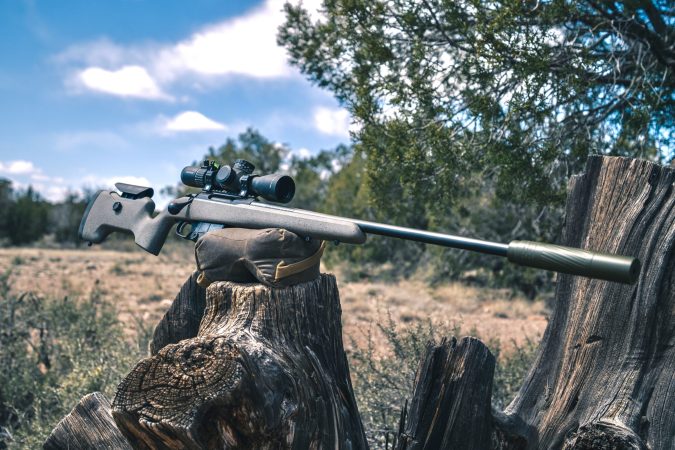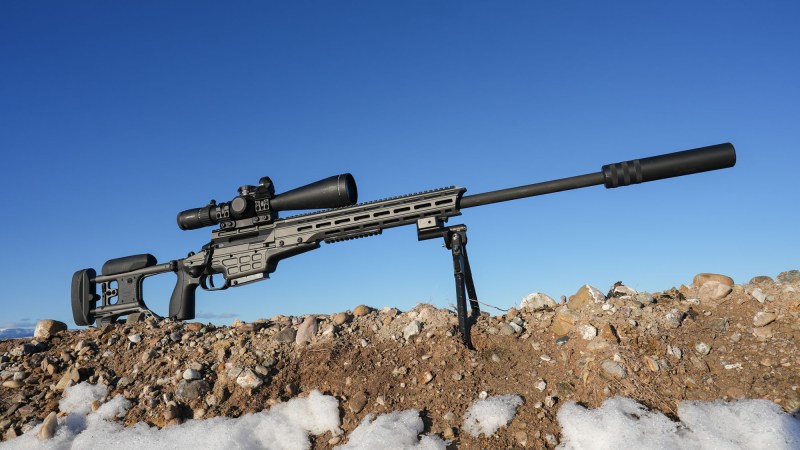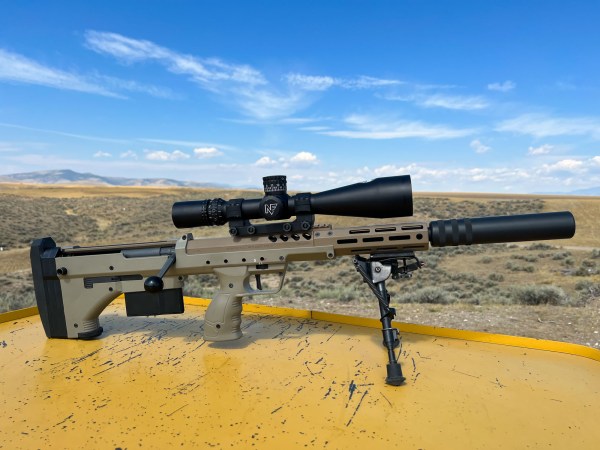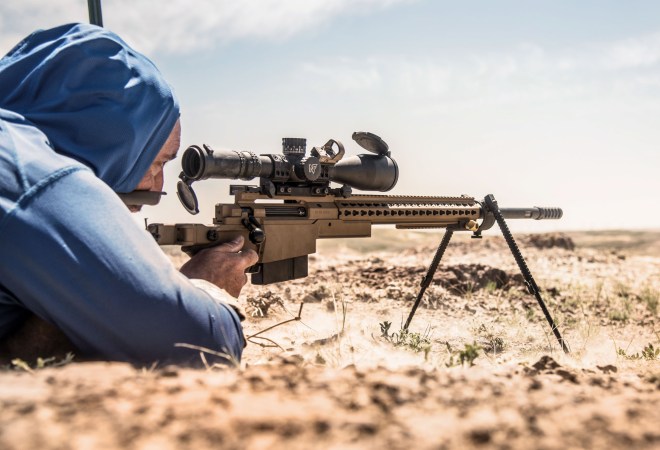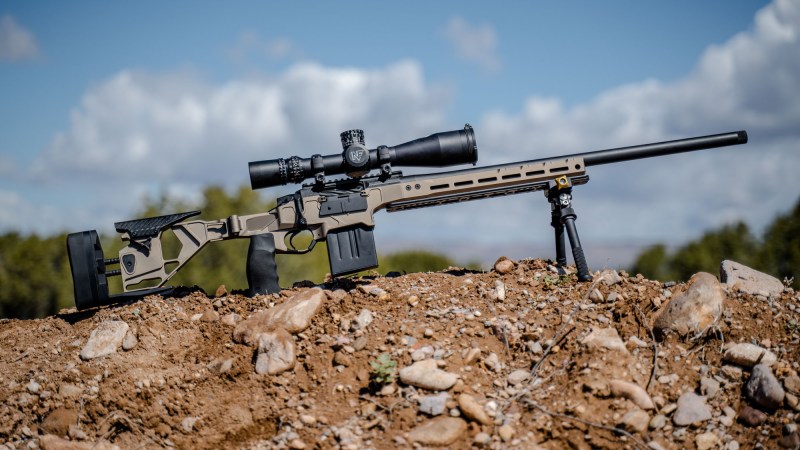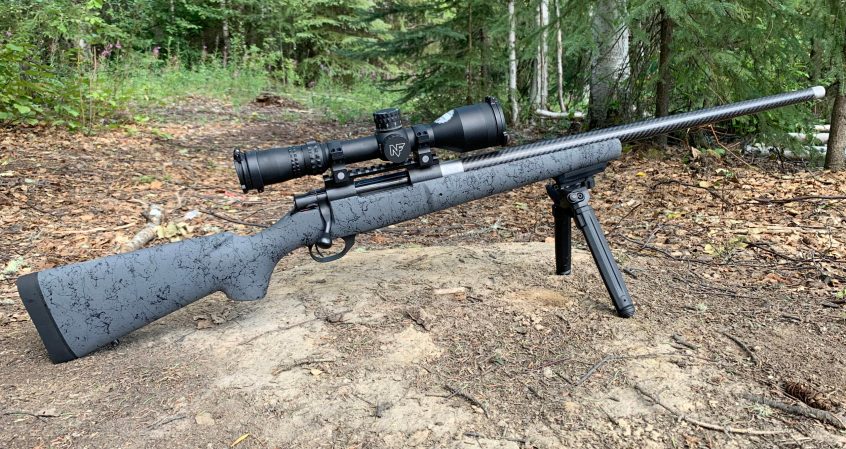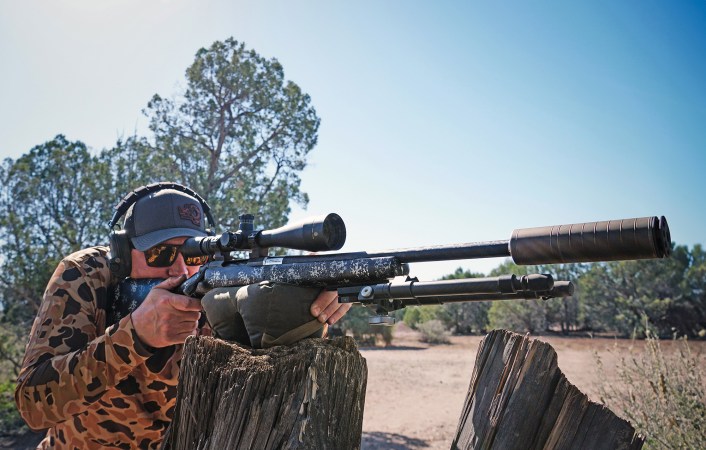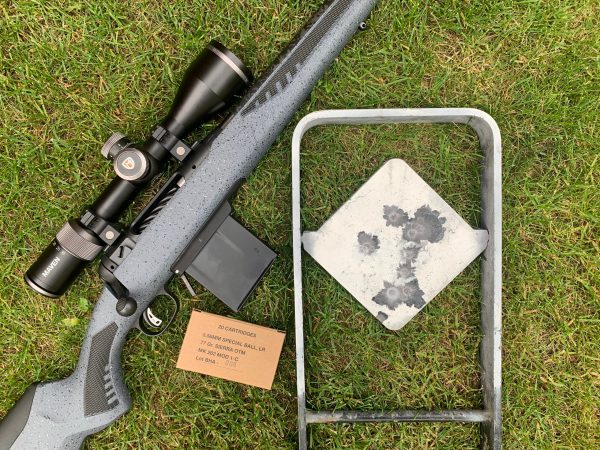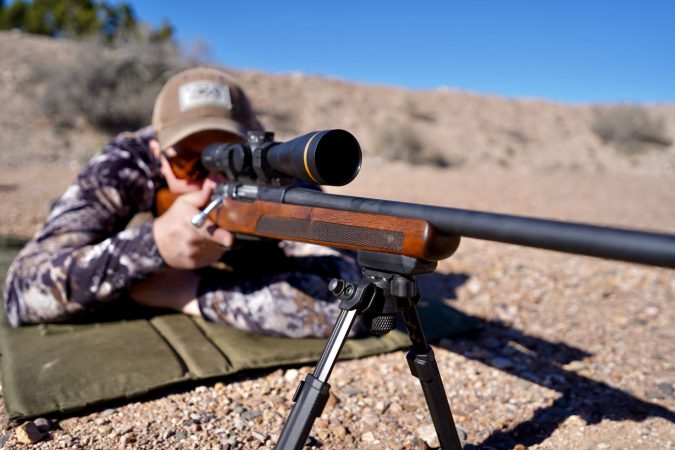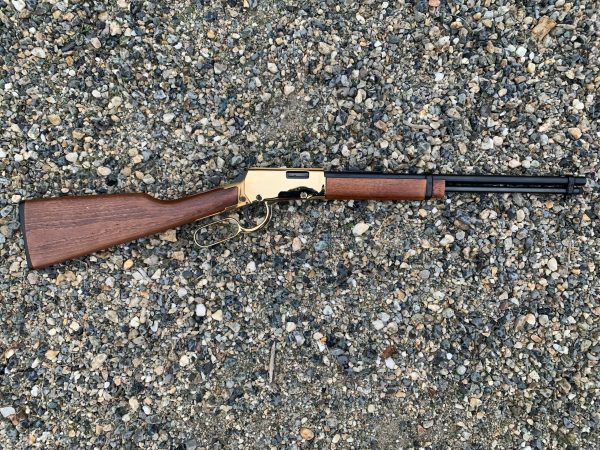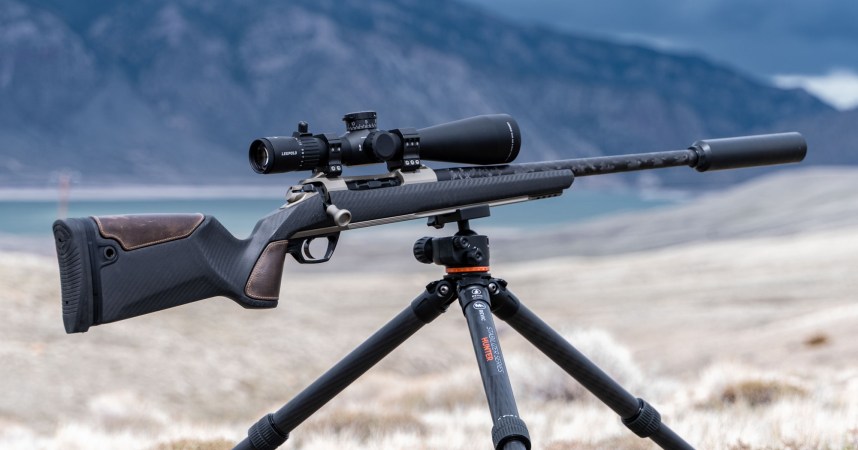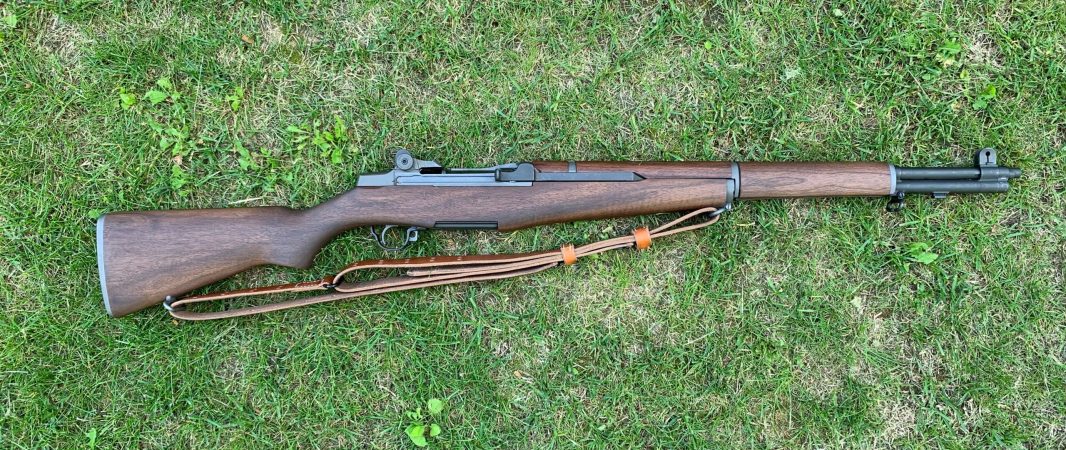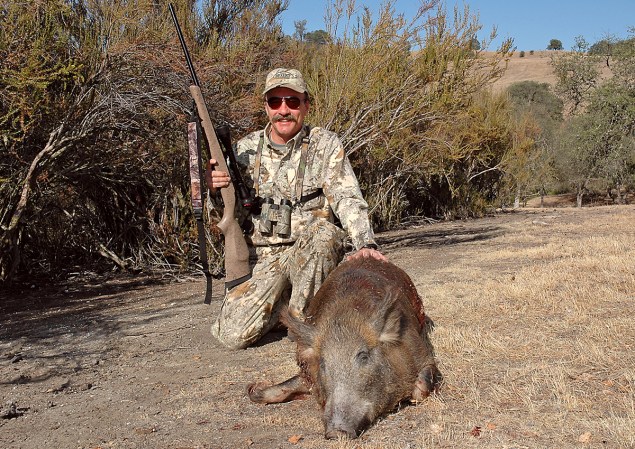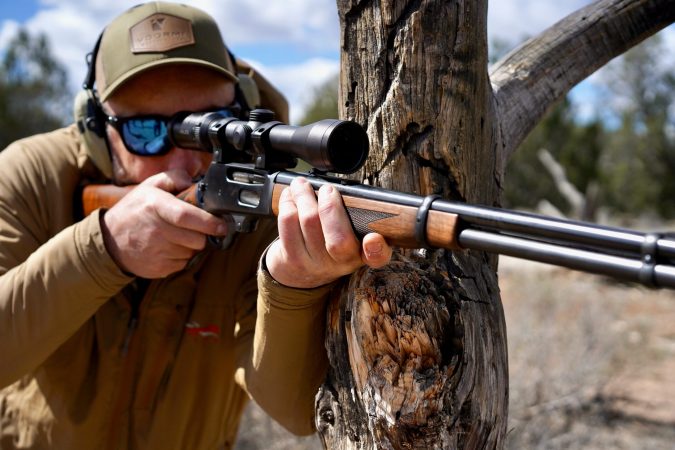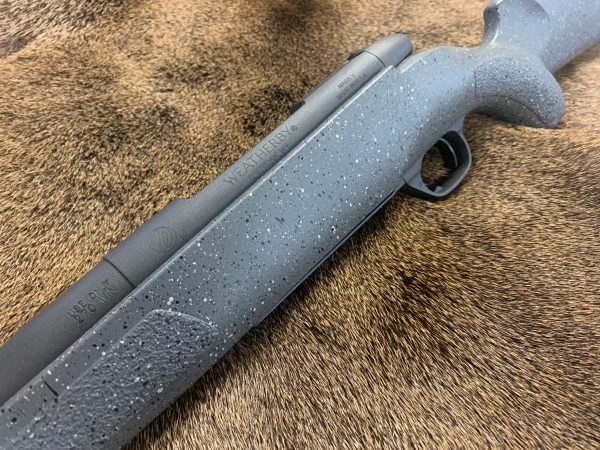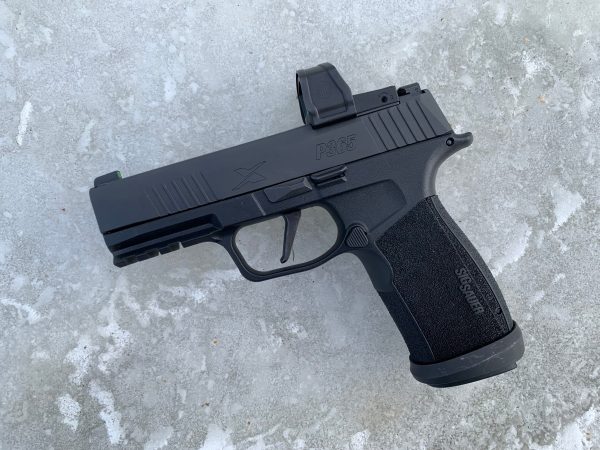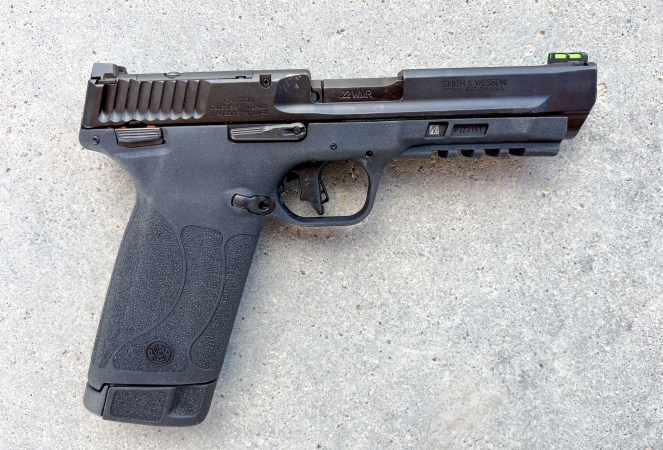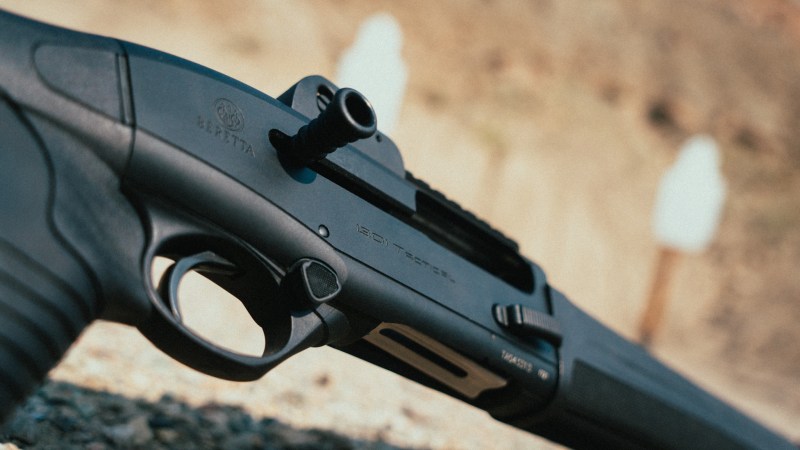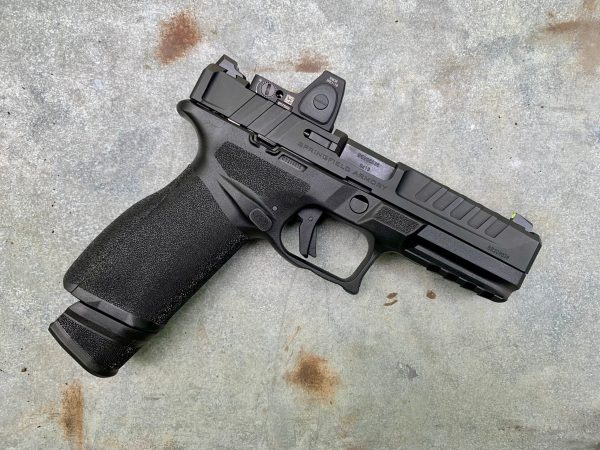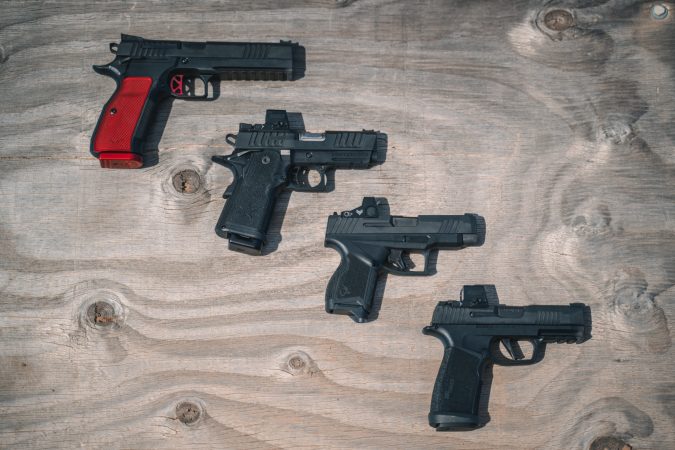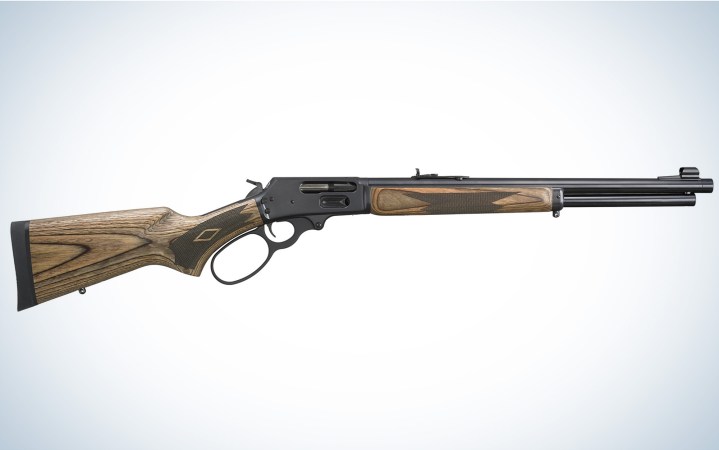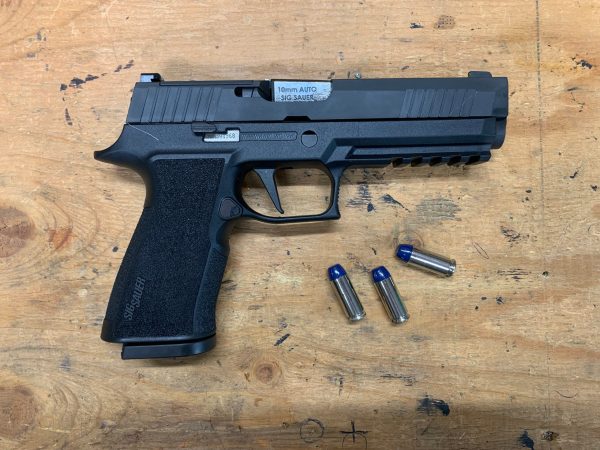We may earn revenue from the products available on this page and participate in affiliate programs. Learn More ›
I was immediately intrigued by the Sig Cross at SHOT Show 2020, where we were just beginning to see the explosion of light, folding-chassis hunting rifles, and the Cross became a big player in that market. Despite looking nothing like a traditional hunting rifle, combining AR and precision rifle ergonomics in a portable, fully-adjustable platform made the Cross an appealing choice for hunters and shooters of all sizes. In fact, our Shooting editor John B. Snow has told me stories of having to wrangle a prototype sample in 6.5 Creedmoor back from a buddy who was less than willing to part with it because of the absurd amount of elk the rifle had killed.
There hasn’t been a lot of variety in the Cross rifle, but in typical Sig fashion, they are expanding the line to fill in the gaps, making the Cross line more versatile, user-friendly, and now compatible with magnum cartridges. Like the AR, the Cross is a machinist’s gun. The platform is ideal for potential modifications and parts compatibility. Sig officially launched the Cross Magnum, chambered in .300 Win. Mag, in late 2023. I jumped at the chance to get one, and have burned over three pounds of gunpowder getting to know it. I’m not cutting the Sig Cross Magnum any slack — more on that in a bit — but I think it’s a platform that opens a variety of possibilities to magnum rifle fans.
Sig Cross Magnum Specs
- Cartridges: .300 Winchester Magnum
- Barrel: Stainless, 24 inches, 1:9 twist, threaded 5/8-24
- Bolt: Three-lug, Sako-style extractor, spring ejector
- Stock: Sig Precision Stock
- Trigger: Sig 2-stage match trigger; 1 pound 3 ounces (measured)
- Handguard: 18-inch free-float with full ARCA rail and M-Lok attachment points
- Optic mounting: single-piece Picatinny rail
- Weight: 8 pounds 15 ounces (measured)
- Price: $2,500
Key Features
- First magnum-length Sig Cross
- Fully adjustable folding stock
- Ambidextrous safety levers with thumb rest
- Two-stage trigger
- Full-length ARCA rail handguard with M-Lok attachment points
- Tool-free takedown bolt
- Takes AICS magazines
Review Highlights
- New handguard and folding stock updates make the Cross more user-friendly
- Good accuracy, but picky about ammo
- PRS grip and safety thumb rest provide great ergonomics
- Trigger on my sample is lighter than it should be
- I see this Cross Magnum as a potential platform for many calibers
- Accuracy: 1.44 inches (average of 37 5-shot groups at 100 yards with 9 types of ammo)
- Best Factory Ammo: Barnes 165-grain TTSX, average group size .975 inches (4 groups)
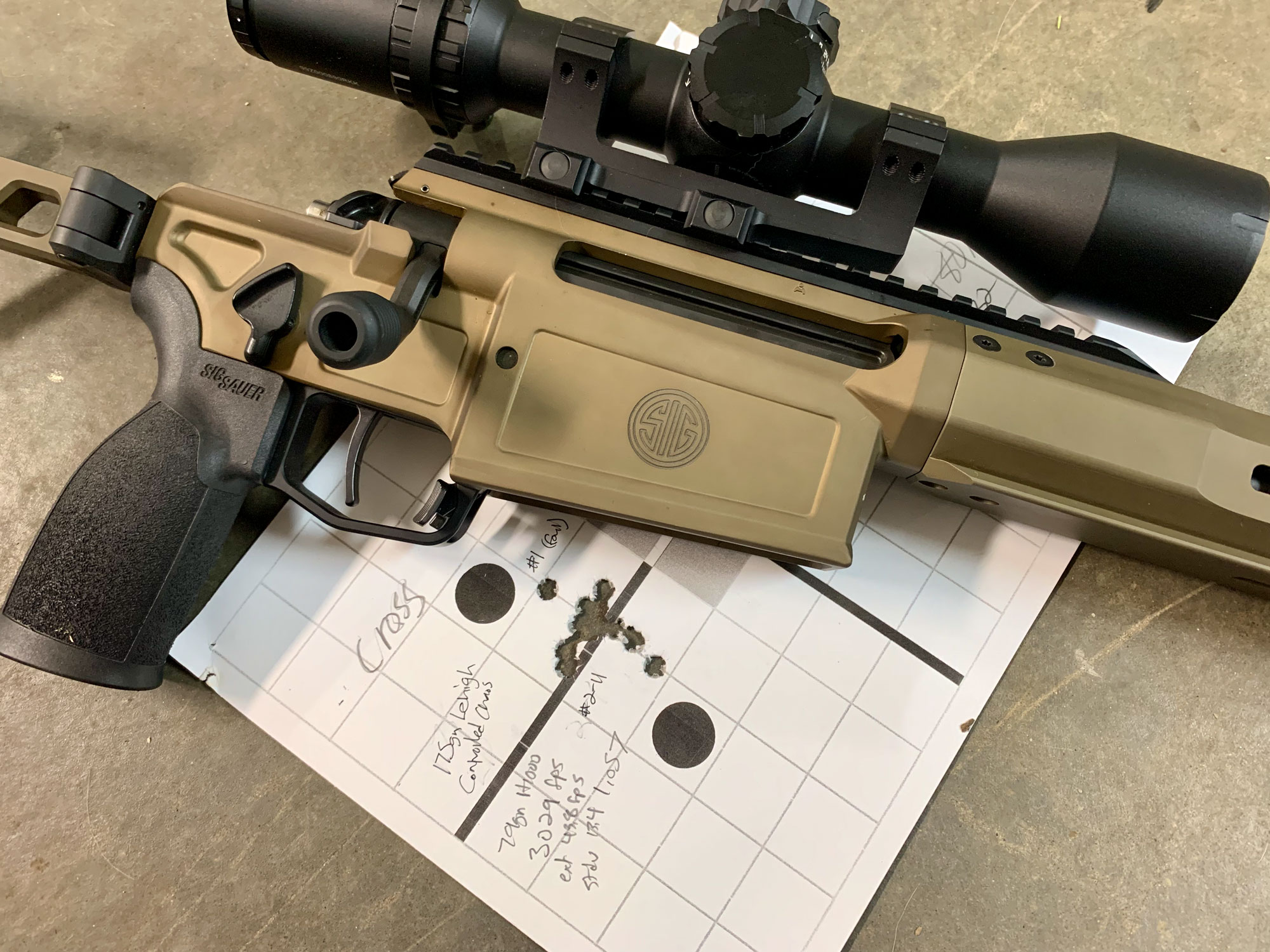
Tyler Freel
Basics of the Sig Cross Magnum
There aren’t any shockers for shooters who are familiar with the Sig Cross lineup. The Sig Cross Magnum isn’t much different from the first one we looked at back in 2020. It features a solid anodized aluminum receiver, AR-compatible grip, and AR-style thumb-select safety. It’s got a fully-adjustable folding stock and free-float aluminum handguard. The rifle pairs with AICS magazines and has a single-piece Picatinny rail atop the receiver that extends slightly out over the handguard. Like the original Cross, the Sig Cross Magnum is simple, sleek, and versatile. This new model does include a few key updates too, and not just a magnum-length action and longer barrel.
The Stock
The folding stock on the Cross Magnum is intuitive and easy to adjust on the fly. It’s adjustable in four planes and, without tools, can be fit to just about anyone in a matter of seconds. Length of pull can be changed by loosening the wingnut-like screw on the starboard side of the stock, then moving the butt in or out and retightening. The butt pad can be moved up or down between 5 different settings by pressing the small triangular button on its side and moving it where you want it. Butt pad angle can be changed by loosening two set screws and rotating the pad clockwise or counter-clockwise. The comb pillars are spring loaded and when the toggle lever is released, the comb pops up to its full height. You can adjust on the fly by simply pressing the comb down with your cheek until your head position is correct, then lock the toggle. I found this adjustment to be handy for different shooters and on-the-fly-adjustments for awkward shooting positions.
The biggest difference between the Cross Magnum stock and the one on the original Cross is the hinge release. The Sig Cross Magnum’s hinge uses a button latch that, when pushed, allows the stock to swing to the folded position, over top of the bolt handle. The original Cross used the classic push-pin-downand-lift design to unlock the stock. This new one is sturdier and easier to operate.
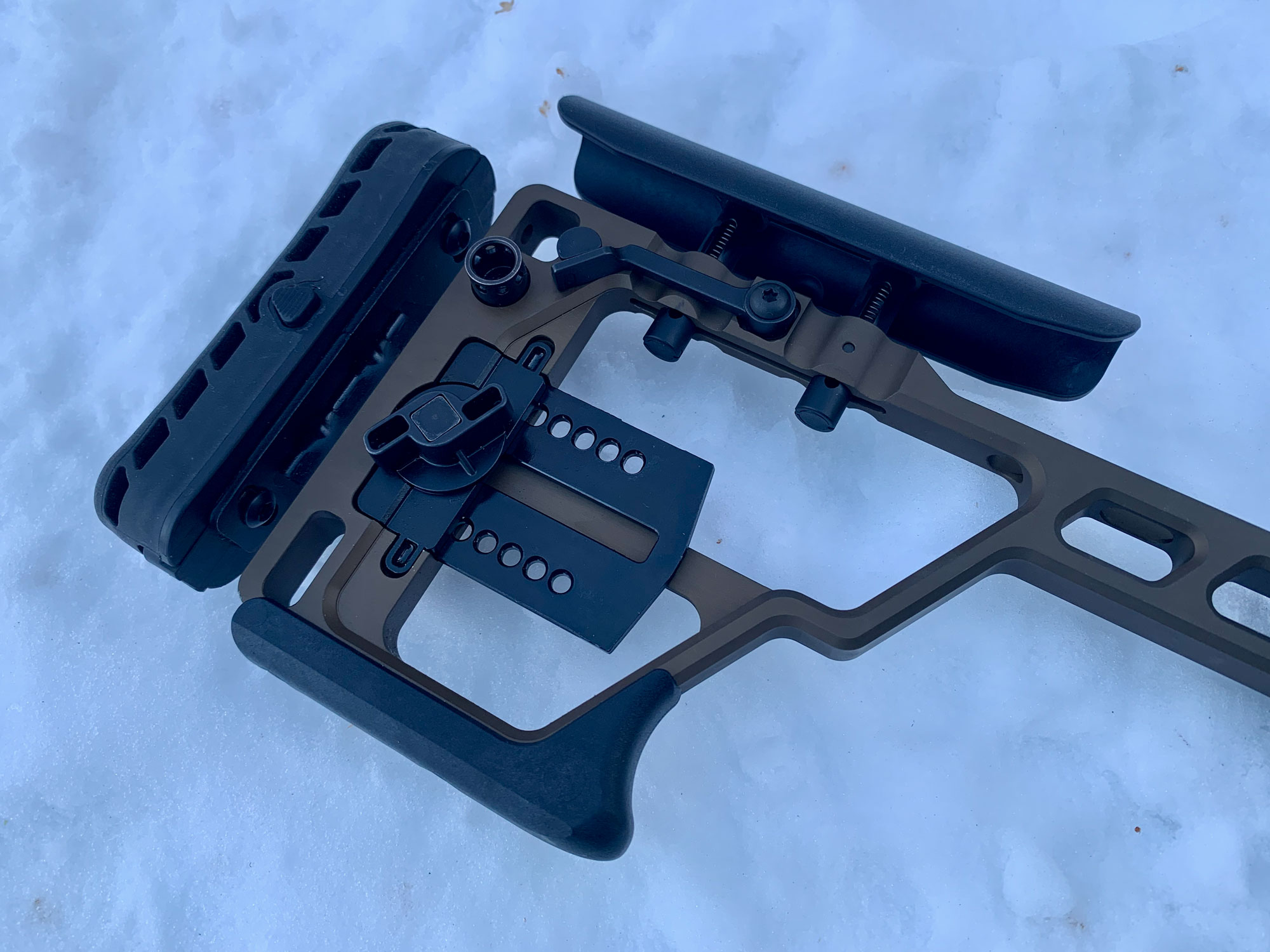
Tyler Freel
The Handguard
Sleek accessory compatibility is one of the Cross rifle’s strengths. The basic Cross rifle features an aluminum float tube with M-Lok slots for attaching bipods, QD sling mounts, or other accessories. The Cross Magnum does all that, but also incorporates a full-length ARCA rail on the bottom. Shooters can attach an ARCA or M-Lok bipod, and still have plenty of ARCA near the receiver for mounting on a shooting tripod. The handguard attaches to the receiver via three pairs of T15 screws at 10 o’clock, 2 o’clock, and 6 o’clock.
Grip and Controls
Though the grip is compatible with other AR grips, it’s nice to see Sig opt for a chunky, vertical PRS-style grip for this rifle rather than something more generic. The updated style of safety levers that the Sig Cross Magnum uses are an ergonomic compliment to the grip. Like the original Cross, the rifle employs an ambidextrous AR-style safety lever, but the Cross Magnum has one with built in thumb rests on both sides. The combo sets up a nice, ergonomically sound grip, and allows good trigger control.
The magnum-sized AICS magazine can accommodate cartridges up to 3.850 inches in length. seats easily and securely in the receiver, and the magazine release is a low-profile dual paddle inside the front of the trigger guard. It’s intuitive to operate with the trigger finger for either right- or left-handed shooters, but can also be depressed with the off-hand thumb while pulling the magazine free. Each tab has good ribbed texturing, but is rounded and doesn’t protrude outside the width of the magazine well — a great feature for a hunting-focused rifle.
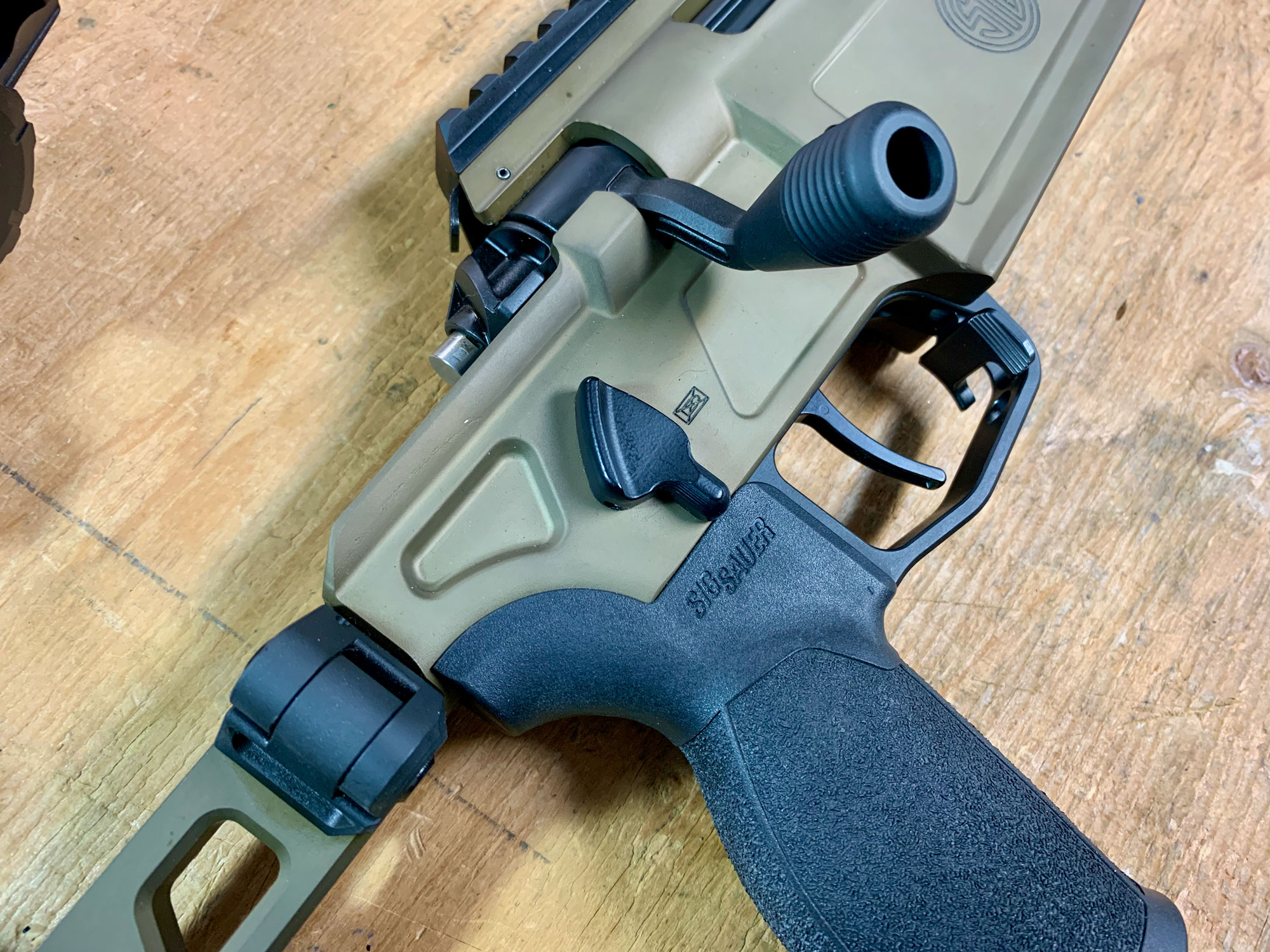
Tyler Freel
The Sig Cross Magnum’s Versatile Bolt
Many key features of the Sig Cross and Cross Magnum rifles lend to their potential versatility. The bolt is just one of those components. The bolt body has the same diameter as the three locking lugs, which makes for a fairly slick action. It’s got a 60-degree bolt throw that’s crisp and light on the lift.
The firing pin assembly and bolt handle are easily removed from the bolt body without tools, as is the bolt head and retaining pin — making it a potential shoe-in for pre-fit barrels and bolt heads for other calibers. The barrel is attached to the receiver similar to an AR. It has a barrel extension that slides into the receiver and is secured by a barrel nut. A number of companies already make pre-fit barrels for the original Cross, and i’d expect to see them here too.
The bolt head features a small Sako-style sliding extractor in one of the lugs, and uses a single plunger ejector in the bolt face.
I had no function or ejection issues with my test rifle but, when drawing the bolt back very slowly, the ejector would sometimes spin cases around in the receiver rather than spit them out on the bench or shooting mat next to me for easy collection.

Tyler Freel
Adjustable Two-Stage Match Trigger
The trigger is my only real dig on the Sig Cross Magnum. Perhaps I just drew a bad one — such things happen — but it’s a detail I would pay close attention to if buying one. I really like two-stage triggers for precision work, probably a result of my service rifle days. I have two big issues with the trigger on the Sig Cross Magnum that I have. First, the trigger on my test sample is too light. For a hunting rifle, the 1 pound 3 ounce trigger weight is too light — I’d go as far as to say dangerously so. Second, an even more alarming issue is that the difference in weight between the first and second stage is too small.
The User manual details the trigger as being adjustable between approximately 2.5 and 4 pounds. As shipped, mine broke at 1 pound, 3 ounces as measured by my Lyman trigger pull gauge. The difference between the first and second stages at any given adjustment point was only 2 to 4 ounces.
If you’re unfamiliar with how a two-stage trigger works, it’s pretty simple. The first stage of the trigger is slack. As you add weight and press the trigger, it moves back smoothly until stopping abruptly against a wall of resistance. The second stage is adding force against this (hopefully) rigid resistance, finally operating the sear firing the rifle. A smooth first stage and heavier second stage allow a shooter to gently add pressure to the trigger until it breaks.
The Sig Cross Magnum trigger adjusts via a T15 screw in the front of the trigger guard. At the light end of the adjustment range, the first and second stages were tangible and distinct. Several times though, I lost concentration and blew right through the first and second stages, firing a shot before completely ready. I explored the entire adjustment range, and at the heaviest setting, the trigger pull measured 2 pounds, 12 ounces. However, because the stages are only a couple ounces apart, I could no longer feel the stop at the second stage and it just felt like a long-pulling trigger. A trigger with these characteristics is not one that I want.
Shooting the Sig Cross Magnum
In the field and on the range, the Cross Magnum captures much of what makes the Cross platform a captivating rifle. For a 24-inch-barreled precision-styled rifle, it’s pretty compact — only 36 inches long when folded up. As mentioned, it’s highly adjustable and compatible with a wide variety of shooting aids. With very little effort, it can be set up for belly shooting steel arrays, clipped into a tripod for standing shots, or bagged for support. The cost of going to a magnum-length action? It’s much heavier than the compact Cross models.
Without a magazine, the bare weight of the gun is just under 9 pounds, and fitted with a cantilever mount and Sig Whiskey 6 3-18 x 44 scope, it’s 11 pounds, 2 ounces. Compared to most mountain rifles, this is absurdly heavy, but within its peer group, the Cross Magnum isn’t excessive. That bit of extra weight along with its range of adjustment and radial muzzle brake make shooting this rifle a pleasure. Even without a brake, the recoil impulse isn’t too sharp.
With a titanium suppressor, the Sig Cross magnum is even nicer to shoot. I shot the rifle with three different suppressors: a Silencer Central Banish .338, Banish Backcountry, and a Silencero Scythe Ti. The endcap brake on the Scythe made it the softest-shooting of the three, but for carrying around the mountains, the Banish Backcountry is equally as appealing.
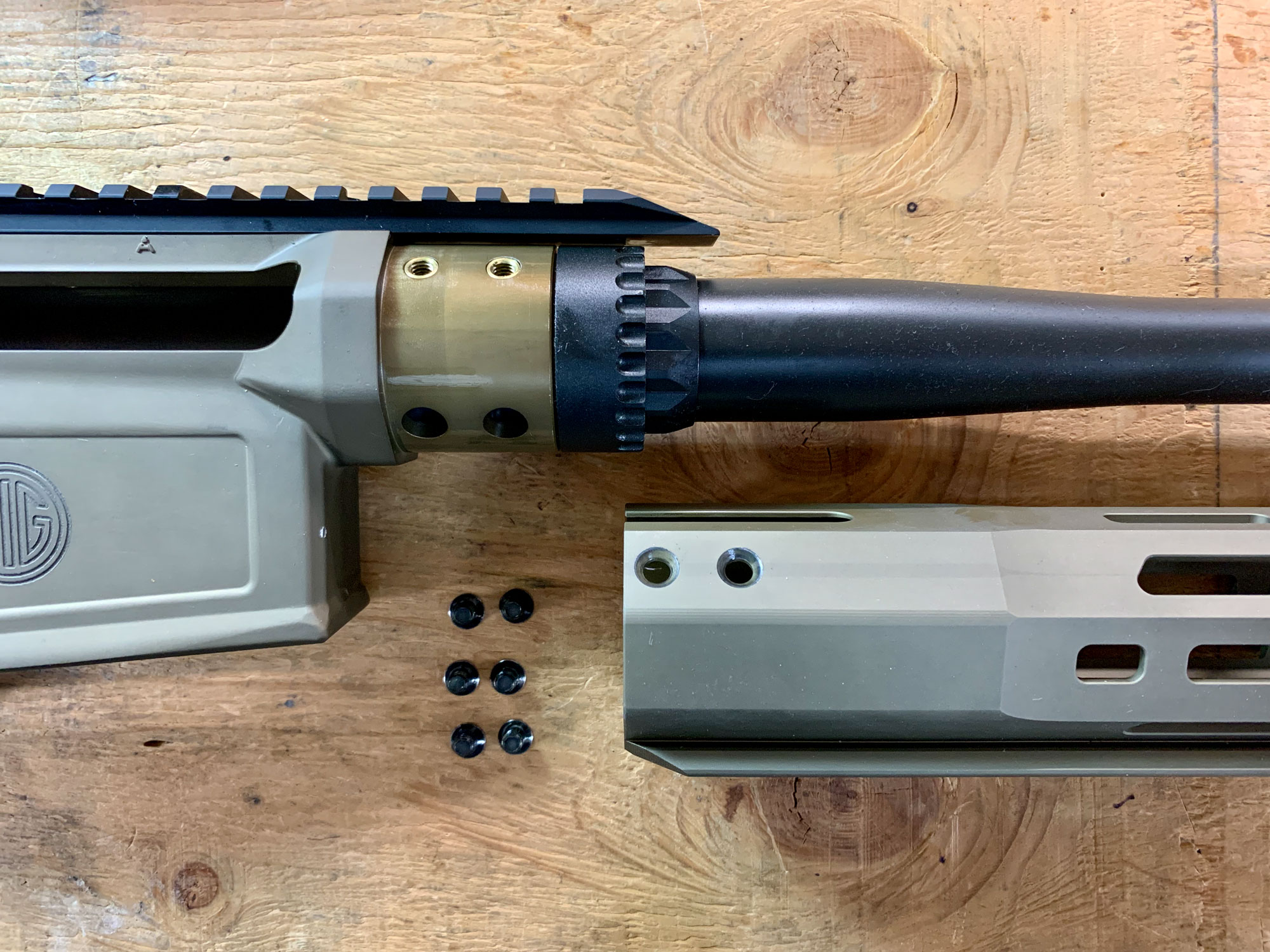
Tyler Freel
Accuracy
I was initially underwhelmed by the Sig Cross Magnum’s accuracy but, all things considered, it’s not as bad as it sounds. I recorded 37 5-shot groups across 9 different types of ammo and found the rifle to be picky. Most factory ammunition averaged groups in the 1.5- to 2-inch range, and the gun only shot one factory load well. Four groups of Barnes Vor-Tx 165-grain TTSX averaged .975 inches.
Two of the three hand loads I tested averaged better than most of the factory stuff. The best-shooting of those was one I developed for my Fierce CT Rival, shooting 212-grain Hornady ELD-X bullets with 69.5 grains of RL 22. They averaged 5-shot group sizes of 1.16 inches (5 groups) with the factory muzzle brake and, interestingly, .79 inches (5 groups) while using the Silencerco Scythe Ti suppressor. It’s a small sample size, but both sets of groups were pretty consistent with .22- and .23-inch standard deviations. The first only had one sub-inch group, and the second only had one group that measured more than an inch.
Another good-shooting load used Lehigh Defense 175-grain Controlled Chaos copper bullets atop 79 grains of H1000. My 10-shot experimental group with that load measured 1.06 inches. An aggregate of the best 10 5-shot groups, which we have been using to show a rifle’s potential, is .800 inches.
My takeaway from accuracy testing with this rifle is that it’s capable of really good accuracy, but you will have to sift through the dogs to find what it likes. That’s not out-of-character for a production-chambered .300 Win. Mag. Compared to my Fierce CT Rival, which averaged 1.02-inch groups overall and averaged .599-inch groups with the 212-grain ELD-X load, the chamber in the Cross Magnum has approximately .030-inch more freebore until the bullet hits the lands.
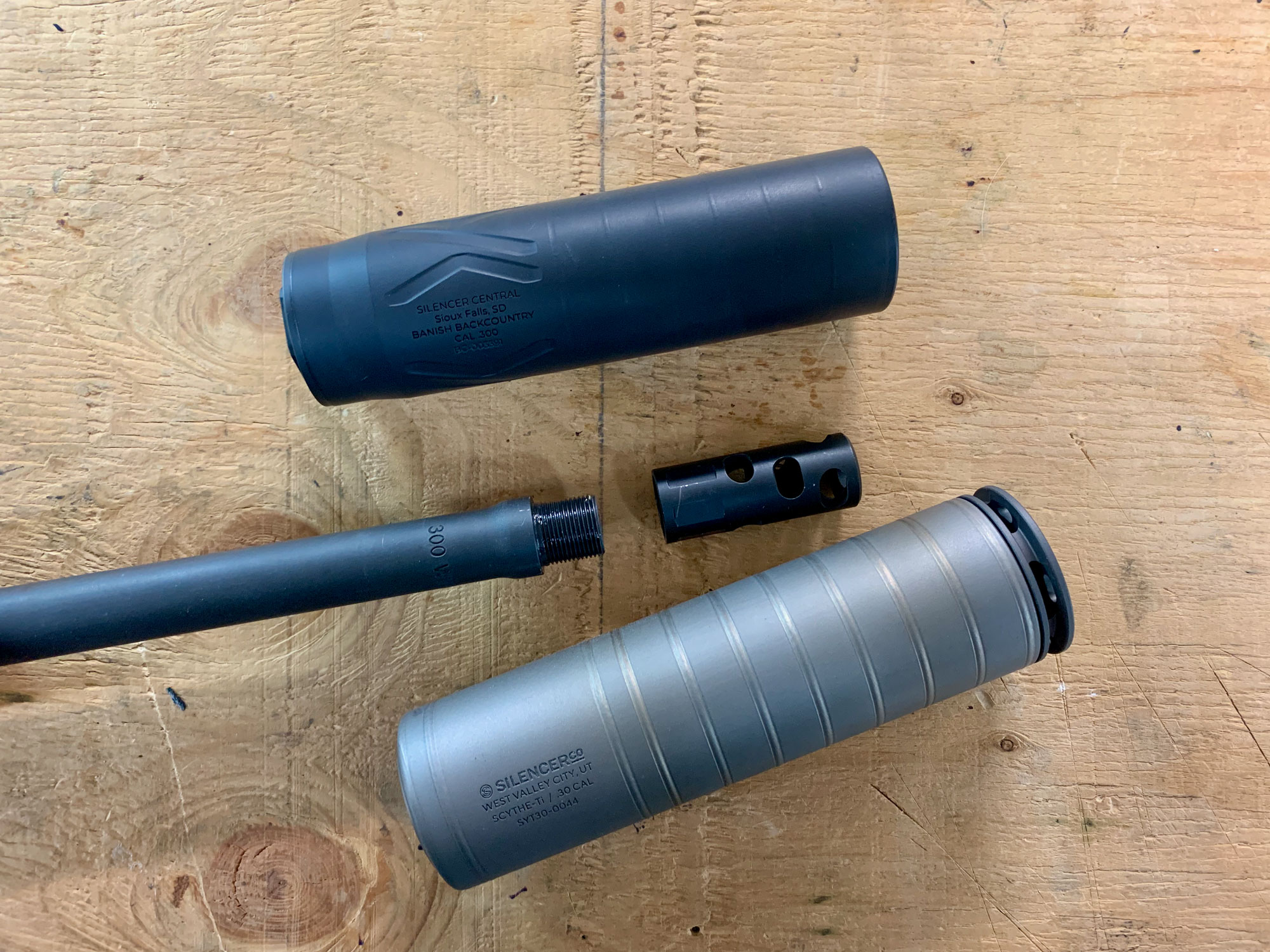
Tyler Freel
What the Sig Cross Magnum Does Well
The Sig Cross Magnum is an accurate, highly versatile platform that can pull precision-rifle duty while remaining reasonably light and compact when folded. The most exciting thing about the platform is the possibility of easily switching between magnum barrels and calibers.
Where the Sig Cross Magnum Could Be Better
The biggest fault of my test sample was the trigger. Though with great concentration it allowed precise shooting, it’s too light for a hunting rifle, and the second stage needs a larger difference in pull weight. As a hunting rifle, the stock components are a bit snaggy compared to a smooth synthetic stock.
Final Thoughts on the Sig Cross Magnum
In itself, the Sig Cross Magnum is a cool rifle that’s smooth to operate, acceptably accurate, and highly adjustable. It’s not as nimble as the short action, but I think it’s worth the money. Seeing the markets that have emerged for OEM and aftermarket Sig upgrades for their pistols, I have no doubt that shooters will start seeing them for the Cross Magnum. Pre-fit carbon barrels and easily-swapped bolt heads would allow this platform to handle just about any reasonable magnum. It’s a nice rifle, and I think its versatility and utility will only get better with time.

